News
Minimum Wage: Strike begins in five states, FCT as panel meets

Barring any last-minute change of plan, the workers in the Federal Capital Territory, Cross River, Nasarawa, Ebonyi, Kaduna and Zamfara states may down tools on Monday (today) following the failure of the state authorities to negotiate the payment of the N70,000 new minimum wage.
Though the implementation panels set up by the concerned states have been meeting with labour leaders in a bid to ward off the strike action, the various state chapters of the Nigeria Labour Congress have expressed their readiness to embark on a strike from today.
The FCT Council of the NLC had earlier directed the workers in the six Area Councils to embark on an indefinite strike on December 1 until further directives were issued.
This was contained in a letter signed by the Chairman of the FCT Council of the NLC, Stephen Knabayi, on Saturday.
This followed the directive of the NLC leadership to workers in 14 states and the FCT to embark on industrial action from Sunday over the non-implementation of the new minimum wage.
Knabayi faulted the failure of the area council chairmen to respond to the demand for the implementation of the minimum wage, despite receiving the communique of the National Executive Council of the NLC dated November 14, 2024.
The Nasarawa State chapter of the NLC on Sunday declared its readiness to declare a strike if the minimum wage was not paid.
The state NLC Chairman, Ismaila Okoh, disclosed that a notice of strike had been issued to all the labour members.
He, however, revealed that the Nasarawa State government had reached an agreement with the union to pay N70,500 to the workers, adding that no document had been signed regarding the implementation.
He said, “We have notified all our members to embark on strike tomorrow (today) because of the non-implementation of the national minimum wage in the state.
“Although the minimum wage committee set up by the state government has agreed to start paying N70,500, no document has been signed to that effect up till this moment.
“So, we are observing the situation to see if the documents on the minimum wage will be signed before tomorrow morning. However, if nothing is done between now and midnight, our members will have to fully comply with the strike as they were directed.”
To avert a shutdown, the Kaduna State Government said it had commenced the implementation of the new national minimum wage, with the least-paid worker in the state receiving N72,000 as gross salary in November.
The PUNCH reports that many states agreed to pay above the N70,000 minimum wage, with Kaduna State offering its workers N72,000 as minimum wage.
Despite the positive development, the state chapter of the NLC confirmed its planned strike.
The state’s chairman of the NLC, Ayuba Suleiman, said the workers would embark on a strike as directed by the NLC leadership.
When asked if the NLC was prepared to embark on a strike, Suleiman replied, “Yes, we are set for the strike.”
However, a statement on Sunday by Ibraheem Musa, the Chief Press Secretary to Governor Uba Sani, insisted it was “a misrepresentation for the NLC to claim that the state has defaulted in the payment of the new minimum wage.”
Musa noted that the state government had complied with the letter of the National Minimum Wage Law.
“His Excellency, the Executive Governor of Kaduna State, Senator Uba Sani, has complied with the spirit and letter of the National Minimum Wage Law, by paying the lowest paid civil servant N72,000 last month,” he said.
He added that the NLC had been pushing for consequential adjustments but the state government argued that there was a difference between salary increments and the minimum wage.
Musa explained that the state government received an average of N8bn from the Federal Allocation and generated around N4bn monthly, totalling N12bn revenue.
However, he said with the implementation of the minimum wage, the monthly wage bill had increased from N5.4bn to N6.3bn, including N4bn deduction for loan payments every month.
This, he said, left only N2bn for rural transformation, healthcare, education, and other public services in the state.
“It will be unfair for Kaduna State Government to spend almost all its revenue on consequential adjustments, after paying the mandatory minimum wage.
“There are over 10 million people who are also entitled to the accrued revenue of Kaduna State. There are 84,827 civil servants in the state. So, it is unreasonable for the government to spend over 90 per cent of its revenue on just about one per cent of the population,” he added.
Musa urged the NLC to exercise patience over the consequential adjustments, pending when the state government’s revenue improved.
“Governor Uba Sani is labour-friendly. He has demonstrated this by providing buses for civil servants to commute to work free of charge, as part of the palliatives to cushion the prevailing economic challenges,” he said.
Meanwhile, the Chairman of the NLC in Ebonyi State, Dr Oguguo Egwu, disclosed that the state workers had been directed to join the ongoing industrial action from today.
According to him, the warning strike, which will last one week, was sequel to the failure of Governor Francis Nwifuru to implement the new national minimum wage.
He said, “Talking about the new national minimum wage as it concerns Ebonyi State, our governor on September 11 at the Ojiji festival of Izzi Kingdom announced the new minimum wage of N70,000 and we are all aware of that.
“We were very happy and excited that Ebonyi would be among the first states to implement the wage. But subsequently, there was no communication and no information.
“And we heard that the governor wanted to implement the national minimum wage without any due process of collective bargaining where both the workers and government angle would meet to agree on the consequential adjustment.”
Also, the Zamfara State NLC secretary, Ahmed Abubakar, said workers in the state had yet to receive the new minimum wage, and as such had no alternative but to join the strike.
He said, “We are going to join the strike as directed by the national body of our great union to express our anger over the non-payment of the new minimum wage.”
Abubakar, however, explained that the union would continue to dialogue with the state government on the issue.
The organised labour in Cross River is set for an industrial action over the non-implementation of the new minimum wage in the state.
The Cross River State Chairman of the Nigeria Labour Congress (NLC), Gregory Ulayi, disclosed that the union would embark on an indefinite strike if the state government failed to implement the new minimum wage to workers.
However, it was learnt that the state government reached an agreement with the state chapters of the NLC and TUC late on Sunday night to pay the N70,000 wage to its workers.
Calls to the NLC and TUC officials to clarify whether the state workers would still embark on strike were not answered as at the time of filing this report.
Credit: PUNCH
News
Osun PDP Reps Dismiss Defection Claims, Pledge Support for Adeleke

By Gloria Ikibah
Eight out of the nine Peoples Democratic Party (PDP) members representing Osun State in the House of Representatives have firmly restated their loyalty to the party and Governor Nurudeen Ademola Adeleke, distancing themselves from recent defection claims.
Their stance follows public comments by Rep. Busayo Oluwole Oke, who recently exited the PDP and hinted that other members of the Osun caucus were poised to follow his lead.
In a joint statement released in Abuja on Friday, the lawmakers which include Reps Bamidele Salam, Ajilesoro Abimbola Taofeek, Mudashiru Lukman Alani, Akanni Clement Ademola, Omirin Emmanuel Olusanya, Adewale Moruf Adebayo, Adetunji Abidemi Olusoji, and Oladebo Lanre Omoleye—made it clear they remain committed to the PDP and its leadership in the state.
They described Oke’s exit as unsurprising, pointing to what they called his long-standing pattern of defiance, public criticism of the party, and antagonism towards the Adeleke-led government.
The lawmakers labelled his defection as an act of ingratitude, given the political opportunities the PDP had afforded him over the years, and cautioned him against spreading misleading narratives aimed at courting favour within his new political camp.
News
Kalu Rallies South East to Embrace Centre for Greater National Gains
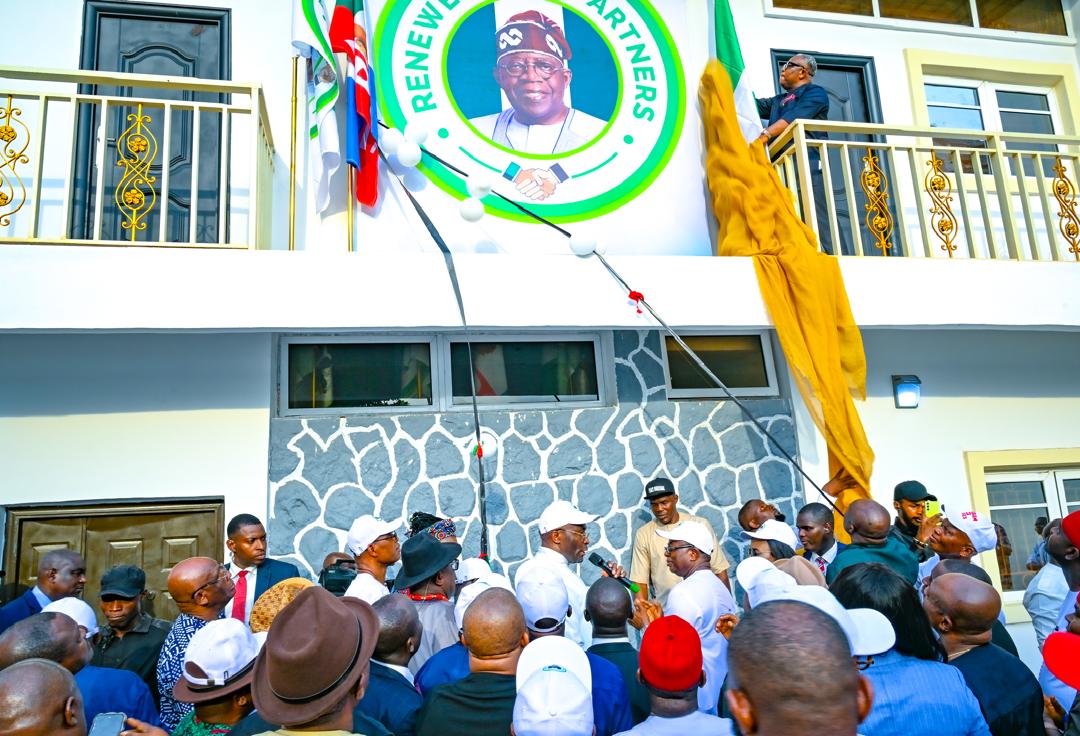
…as he unveils Renewed Hope Partners in Umuahia
…seek federal projects to boost regional economy
By Gloria Ikibah
Deputy Speaker of the House of Representatives,Rep. Benjamin Kalu, has urged the South East to forge stronger political alignment with the federal government, stressing that such synergy is key to unlocking greater development opportunities for the region.
Kalu made this call on Thursday in Umuahia, Abia State, during the formal launch of Renewed Hope Partners (RHP), a political and development-oriented platform tailored to advance the second-term ambition of President Bola Ahmed Tinubu.
Describing the RHP as a strategic tool, Kalu explained that it would serve to bridge national policies with regional priorities, ensuring that the South East fully benefits from the federal government’s agenda.
Speaking to a crowd of stakeholders and supporters, the Deputy Speaker, who represents Bende Federal Constituency, cited various achievements under the current administration, particularly in the South East, and reassured the people of the government’s continued commitment to infrastructure, economic inclusion, and stability.
He called on the federal government to prioritize key developmental projects in the region, including the construction of a gas pipeline to support industrial growth, the dredging of the Onitsha River to revive inland water transport and trade, and the expansion of the Onne port to ease logistics and boost economic activities across the South.
Kalu urged the region to leverage its collective strength and re-engage with the centre for long-term relevance and impact, noting that the time had come for strategic partnership over political isolation.
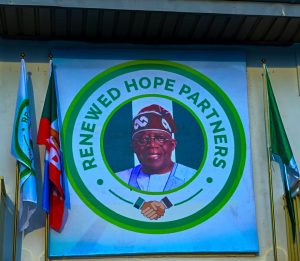
The Deputy Speaker highlighted several milestones recorded under President Tinubu’s administration, including proposed investments totalling $50.8 billion, a rise in national revenues to over ₦9.1 trillion within the first half of 2024, and a GDP growth rate pegged at 3.4% for the year.
He also pointed to a sharp rise in foreign remittances, which reportedly hit $23.4 billion—marking a 61.1% increase compared to the previous year.
Referencing the Compressed Natural Gas (CNG) initiative, Kalu noted that the shift is expected to reduce the country’s petrol import bill by over ₦2 trillion monthly.
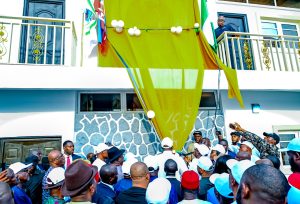
News
Spanish police arrest mother over sale of newborn baby for $2,300

Spanish police said Friday they had nabbed a woman who allegedly sold her newborn baby girl to a couple undergoing fertility treatments for 2,000 euros ($2,300).
Officers arrested the 37-year-old last month in Mostoles, a southern suburb of Madrid, a police statement said. The couple suspected of buying the baby and two of their relatives were detained in the southern city of Cordoba.
A preliminary investigation concluded the woman “reached an economic deal” to give her newborn baby for 2,000 euros to the couple, but then “regretted selling her daughter” and asked to get her back.
The couple refused to return the baby unless the woman returned the money they had paid, plus another 1,000 euros to cover various expenses the woman said she had incurred during the month she spent with them in Cordoba before giving birth.
Police said they began investigating after the woman filed a complaint alleging that a family in Cordoba had “kidnapped” her newborn baby.
The baby was turned over to a child protection centre in Cordoba. The authorities had in 2022 removed the woman’s six other children from her custody, accusing her of neglect, police said.
-

 News24 hours ago
News24 hours agoJUST IN: Rivers Sole Administrator Ibas Shun Reps Panel
-

 Economy11 hours ago
Economy11 hours agoMore Nigerians to experience poverty by 2027 – World Bank
-

 News6 hours ago
News6 hours agoOborevwori /Okowa: PDP experiencing a rebirth and will soon bounce back-Saraki declares
-

 News11 hours ago
News11 hours agoGovernor Oborevwori’s Defection: A Masterstroke That Handcuffs Delta’s Opposition
-

 Politics11 hours ago
Politics11 hours agoLabour Party reaffirms Abure-led leadership after Supreme Court judgment
-
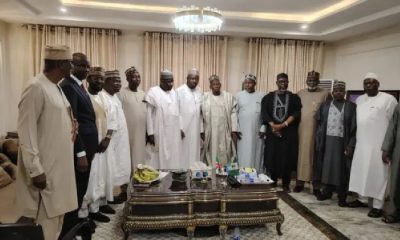
 News11 hours ago
News11 hours ago2027 done deal, more governors joining APC – Ganduje declares
-
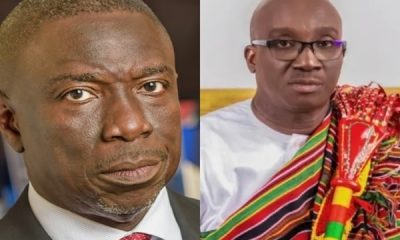
 News4 hours ago
News4 hours agoEdo poll: How APC allegedly offered witnesses N30m bribe
-

 News3 hours ago
News3 hours ago2027: Pro-Fubara protesters want suspended Gov to run as Atiku’s VP(Video)


















